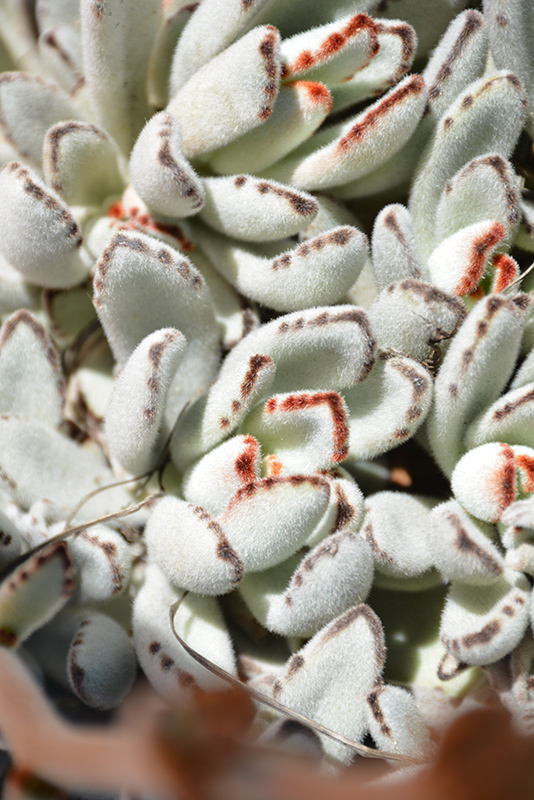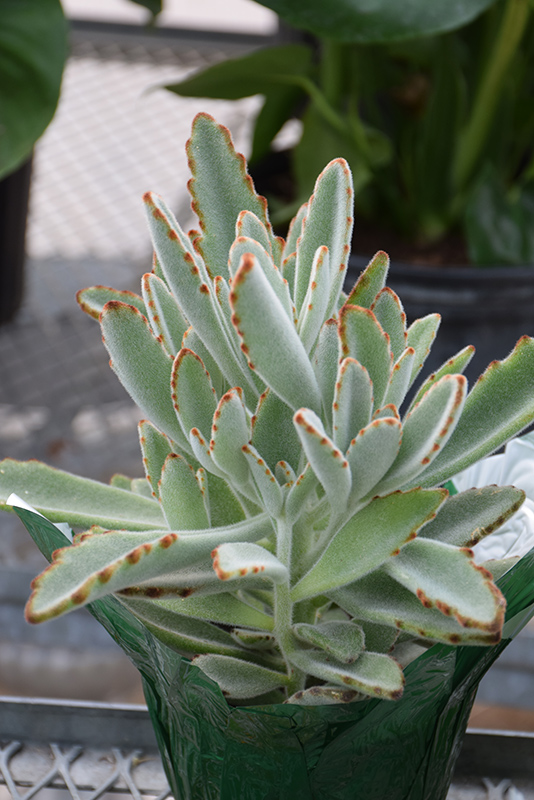Height: 14 inches
Spacing: 8 inches
Sunlight:
![]()
![]()
Other Names: Teddy Bear Cactus, Pussy Ears
Description:
A pretty accent plant for a bright indoor area; oblong, gray-green leaves with reddish-brown spots have a unique felted texture; rarely blooms indoors, if ever; a great houseplant that is easy to grow
Features & Attributes
Panda Plant's attractive tomentose oval leaves remain grayish green in color with distinctive brick red spots and tinges of silver throughout the year on a plant with an upright spreading habit of growth.
This is an herbaceous evergreen houseplant with an upright spreading habit of growth. This plant may benefit from an occasional pruning to look its best.
Planting & Growing
When grown indoors, Panda Plant can be expected to grow to be about 12 inches tall at maturity, with a spread of 10 inches. It grows at a medium rate, and under ideal conditions can be expected to live for approximately 10 years. This houseplant will do well in a location that gets either direct or indirect sunlight, although it will usually require a more brightly-lit environment than what artificial indoor lighting alone can provide. It prefers dry to average moisture levels with very well-drained soil, and may die if left in standing water for any length of time. This plant should be watered when the surface of the soil gets dry, and will need watering approximately once each week. Be aware that your particular watering schedule may vary depending on its location in the room, the pot size, plant size and other conditions; if in doubt, ask one of our experts in the store for advice. It is not particular as to soil pH, but grows best in sandy soil. Contact the store for specific recommendations on pre-mixed potting soil for this plant. Be warned that parts of this plant are known to be toxic to humans and animals, so special care should be exercised if growing it around children and pets.
There are many factors that will affect the ultimate height, spread and overall performance of a plant when grown indoors; among them, the size of the pot it's growing in, the amount of light it receives, watering frequency, the pruning regimen and repotting schedule. Use the information described here as a guideline only; individual performance can and will vary. Please contact the store to speak with one of our experts if you are interested in further details concerning recommendations on pot size, watering, pruning, repotting, etc.
-- THIS IS A HOUSEPLANT AND IS NOT MEANT TO SURVIVE THE WINTER OUTDOORS IN OUR CLIMATE --


